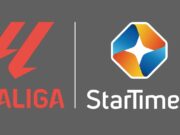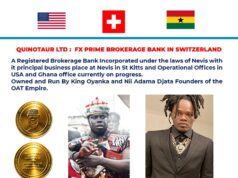To further improve transparency in the oil and gas sector in Ghana, civil society organisations (CSOs) have recommended to the parliamentary Sub-Committee on Mines and Energy that lawmakers include explicit provisions on contracts and beneficial ownership disclosures in the long-awaited Petroleum (Exploration and Production) Bill, 2014 (E&P Bill) before it is passed into law.
At a stakeholders’ consultation meeting on the bill on July 6, staff from the Natural Resource Governance Institute (NRGI), Africa Centre for Energy Policy (ACEP), and Friends of the Nation (FoN), all lauded the introduction of certain provisions to ensure better transparency in the sector but expressed their concerns on the need for explicit provisions pertaining to contract and beneficial ownership disclosure.
(The E&P Bill, when passed in law, will supersede the current Petroleum [Exploration and Production] Act, 1984 [PNDC Law 84]).
Ghana has progressed on the extractive transparency ladder since the 2007 discovery and 2010 production of crude oil.
This is evidenced by the achievement of EITI compliant status in 2010, and the enactment of the Petroleum Revenue Management Act (2010) that requires quarterly and yearly reporting on petroleum revenue receipts and utilisation.
Yet, at the same time, there is not adequate effective transparency across the entire extractive decision chain, especially in the upstream sector.
Extractive data is still published in locked PDFs and JPEGs and is often quite old by the time it emerges.
Oil contracts and their supplementary texts are not open to scrutiny, although some have been voluntarily publicised by the government.
Licences are mainly awarded through direct negotiation without public tender processes, but even when licences are awarded through competitive tendering processes, evaluation reports go unpublished.
Yet multiple publications on international good practices suggest that adequate transparency and accountability in the extractive sector of a country is critical to ensure natural resource is managed effectively to the benefit of its citizens.
While CSO staff commended the bill over the existing law with respect to the introduction of major transparency provisions such as competitive open bidding processes, they pushed for stronger provisions on contract transparency and beneficial ownership disclosure.
The following are the key recommendations that were made by CSOs to the committee:
Disclosure of beneficial ownership
Despite the heightened interest from civil society on the need for beneficial ownership disclosure in the petroleum sector, the draft bill does not include any provision on disclosure of who are the ultimate and true owners of petroleum companies.
Due to the complex and often secretive ownership structures of extractive companies, they tend to develop improper and secret relationships with government officials as well as engage in illegal actions such as tax evasion, cronyism, and nepotism.
Also, the complex ownership structures make it difficult to deter and prevent misconduct and crimes committed by extractive companies. CSOs strongly recommended that the bill include provisions for the mandatory disclosure of beneficial ownership of all licensees.
ACEP’s Dr Mohammed Amin cited examples of these companies and practices in Ghana and urged parliamentarians to consider mandatory disclosure of beneficial ownership as an anti-corruption tool in the bill.
While investigating the questionable award of a contract to AGM Petroleum Ghana, ACEP found that the ownership structure of AGM is exceedingly complex and confusing: “AGM Petroleum Ghana is 100 per cent owned by AGM Gibraltar, registered in a tax haven.
AGR Energy, Minexco OGG and MED Songhai Developers own AGM Gibraltar. Minexco OGG is also registered in Gibraltar and is owned by Minexco Petroleum and WA Natural Resources, also registered in Gibraltar. Minexco Petroleum is owned by Minexco Group. On the other hand, AGR Energy is a subsidiary of AGR Group, which is also a subsidiary of Altor.
Ghana’s EITI attempted beneficial ownership disclosure but could not gain adequate information on the true owners who exercise ultimate control of the companies that operate in Ghana.
NRGI has been supporting the EITI multi-stakeholder group to improve on the search and disclosure of beneficial ownership information in its next EITI report.
If these recommendations are considered by parliament and passed into law, Ghana could become a model for other countries in the region to follow.
The author is NRGI’s Africa regional associate.






























